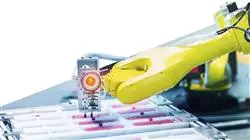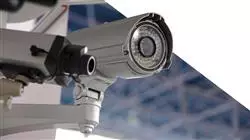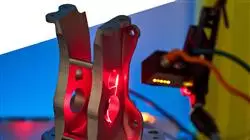University certificate
The world's largest faculty of engineering”
Introduction to the Program
Combine your personal and work responsibilities with your studies thanks to this Postgraduate certificate. 100% flexible and online”

Deep Computer Vision with Convolutional Neural Networks has become one of the most widely used techniques in modern engineering, thanks to its ability to process images and videos with high efficiency and accuracy. In that sense, Convolutional Neural Networks are able to extract complex features from images and learn patterns in them, which makes them an essential tool for object recognition, real-time object detection and tracking of moving objects in a wide variety of fields, from medicine to security and industrial automation.
In order to meet the growing demand for highly qualified professionals in this area, TECH has designed a program that offers students comprehensive instruction in the latest techniques and tools in image and video processing using Convolutional Neural Networks, including Tensorflow and Keras.
TECH has created a complete program based on its unique Relearning methodology to enhance student learning. This teaching process was conceived so that the graduate integrates the fundamental concepts in a natural and progressive way through repetition. In this way, the student will acquire the necessary skills at their own pace.
In addition, the program has been designed in a completely online format so that the professional can focus exclusively on learning, without having to travel or adjust to a fixed schedule. Moreover, the graduate will have the ability to access the theoretical and practical contents at any time and from anywhere, as long as they have a device with an Internet connection.
Access a booming sector with great projection and you will be able to excel in a wide variety of applications, such as computer vision, natural language processing, robotics and voice recognition”
This Postgraduate certificate in Deep Computer Vision with Convolutional Neural Networks contains the most complete and up-to-date program on the market. The most important features include:
- The development of case studies presented by experts in Deep Learning
- The graphic, schematic, and practical contents with which they are created, provide practical information on the disciplines that are essential for professional practice
- Practical exercises where self-assessment can be used to improve learning
- Its special emphasis on innovative methodologies
- Theoretical lessons, questions to the expert, debate forums on controversial topics, and individual reflection assignments
- Content that is accessible from any fixed or portable device with an Internet connection
With the Relearning methodology you will acquire knowledge progressively and with total flexibility. A program that adapts to you”
The program’s teaching staff includes professionals from sector who contribute their work experience to this educational program, as well as renowned specialists from leading societies and prestigious universities.
Its multimedia content, developed with the latest educational technology, will provide the professional with situated and contextual learning, i.e., a simulated environment that will provide an immersive education programmed to learn in real situations.
The design of this program focuses on Problem-Based Learning, by means of which the professional must try to solve the different professional practice situations that are presented throughout the academic course. For this purpose, the student will be assisted by an innovative interactive video system created by renowned experts.
Learn to classify and localize in Deep Computer Vision and develop effective CNN architectures with Keras thanks to this exclusive qualification"

You will gain access to the most cutting-edge knowledge of Deep Computer Vision and you will delve into this important branch of artificial intelligence with an effective methodology and in a 100% online format"
Syllabus
The design of the syllabus for this program has been carried out by a team of experts in the field of Engineering, more specifically in Deep Computer Vision. Thanks to this, TECH has shape an exhaustive and intensive program that gathers the information required to master this discipline in 6 weeks of specialization. In addition to the very complete syllabus, hours of additional material have been selected that graduates can use to personalize their work according to their level of demand. All this presented in a convenient, 100%-online program with complete accessibility from any device with an Internet connection.

Enroll now and access a syllabus designed by experts and with high quality content for you to achieve successful learning”
Module 1. Deep Computer Vision with Convolutional Neural Networks
1.1. Visual Cortex Architecture
1.1.1. Functions of the Visual Cortex
1.1.2. Computational Vision Theory
1.1.3. Image Processing Models
1.2. Convolutional Layers
1.2.1. Reuse of Weights in Convolution
1.2.2. 2D Convolution
1.2.3. Activation Functions
1.3. Grouping Layers and Implementation of Grouping Layers with Keras
1.3.1. Pooling and Striding
1.3.2. Flattening
1.3.3. Pooling Types
1.4. CNN Architecture
1.4.1. VGG Architecture
1.4.2. AlexNet Architecture
1.4.3. ResNet Architecture
1.5. Implementation of a ResNet-34 CNN using Keras
1.5.1. Weight Initialization
1.5.2. Input Layer Definition
1.5.3. Definition of the Output
1.6. Use of Pre-trained Keras Models
1.6.1. Characteristics of Pre-trained Models
1.6.2. Uses of Pre-trained Models
1.6.3. Advantages of Pre-trained Models
1.7. Pre-trained Models for Transfer Learning
1.7.1. Transfer Learning
1.7.2. Transfer Learning Process
1.7.3. Advantages of Transfer Learning
1.8. Classification and Localization in Deep Computer Vision
1.8.1. Image Classification
1.8.2. Localization of Objects in Images
1.8.3. Object Detection
1.9. Object Detection and Tracking
1.9.1. Objects Detection Methods
1.9.2. Object Tracking Algorithms
1.9.3. Tracking and Localization Techniques
1.10. Semantic Segmentation
1.10.1. Deep Learning for Semantic Segmentation
1.10.2. Edge Detection
1.10.3. Rule-Based Segmentation Methods

An academic syllabus created by experts with the purpose of providing you with solid knowledge in Deep Computer Vision with Convolutional Neural Networks”
Postgraduate Certificate in Deep Computer Vision with Convolutional Neural Networks
The ability of computers to interpret and analyze images has revolutionized the way information is processed. This has generated a great interest in the acquisition of skills and knowledge in Computer Vision, in particular in the use of Convolutional Neural Networks. At TECH Global Universitya we have developed a Postgraduate Certificate focused on providing participants with the necessary knowledge to apply these techniques in different areas, such as medicine, robotics and facial recognition. The course will deepen in the operation and application of Convolutional Neural Networks, from feature extraction to model training.
The ability of computer vision technology to recognize specific patterns and features in images is key to a wide range of applications. In our Postgraduate Certificate in Deep Computer Vision with Convolutional Neural Networks, you will learn how to develop effective solutions to complex problems in areas such as real-time object detection, image segmentation and medical image classification. In addition, you will be provided with the tools for implementing convolutional neural network algorithms in programming languages such as Python and Tensorflow, which are widely used in industry.







